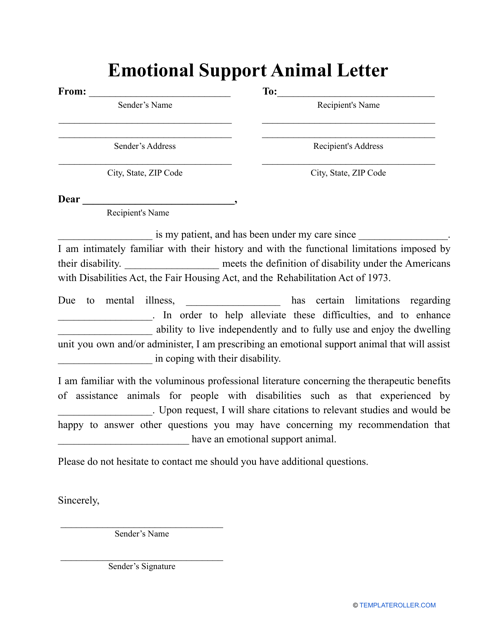A beloved animal companion can bring immense joy to anyone’s life, but for some individuals, they play a critical role in their well being. For those who are struggling with emotional or mental health conditions, animals can provide comfort, companionship, and support. That’s where emotional support animals come in.
What is an Emotional Support Animal?
An emotional support animal (ESA) is a companion animal that provides therapeutic support to individuals with emotional or mental disabilities. These animals are prescribed by licensed mental health professionals to help alleviate stress and anxiety and improve mental health.
ESAs are not the same as service animals, which undergo intensive training to perform specific tasks for individuals with physical disabilities, such as guiding people with visual impairments or assisting individuals who use wheelchairs.
Benefits of Having an Emotional Support Animal
Studies have shown that animals have a calming effect on humans, and having an ESA can offer numerous mental health benefits, such as:
- Reducing anxiety and depression symptoms
- Lowering stress levels and blood pressure
- Increasing feelings of joy and happiness
- Enhancing social interactions and connections
- Providing a sense of purpose and responsibility
Qualifying for an Emotional Support Animal
To qualify for an ESA, individuals must have a disability that negatively affects their mental health and be under the care of a licensed mental health professional. The professional will then determine whether an ESA is suitable and necessary for the individual’s treatment plan.
ESAs are not limited to dogs and cats; any animal can provide emotional support as long as it doesn’t pose a threat to others and can be reasonably accommodated. From birds and reptiles to pigs and horses, a wide range of animals can serve as ESAs.
Getting an Emotional Support Animal Letter
If you believe that an emotional support animal could be beneficial for you, the first step is to discuss your options with a licensed mental health professional. They will evaluate your condition and determine whether an ESA could play a role in improving your mental health.
If they determine that an ESA is indeed appropriate, they will provide you with an emotional support animal letter. This document verifies that you have a disability and require an ESA to help alleviate your symptoms.
Emotional Support Animal Letter Template
 As you can see, getting an emotional support animal letter is an important part of the process for obtaining an ESA. This letter will allow you to register your emotional support animal and gain the benefits that come with having one.
As you can see, getting an emotional support animal letter is an important part of the process for obtaining an ESA. This letter will allow you to register your emotional support animal and gain the benefits that come with having one.
Registering Your Emotional Support Animal
Once you have obtained your emotional support animal letter, the next step is to register your ESA. Registration is not required by law, however it can provide necessary documentation and offer additional benefits such as:
- Allowing you to take your ESA with you on flights without having to pay additional fees
- Being able to live with your ESA in housing that may otherwise prohibit pets
- Gaining access to ESA-friendly establishments such as restaurants and hotels
Conclusion
Emotional support animals are a valuable resource for individuals with emotional or mental disabilities. They offer comfort, companionship, and support that can positively impact mental health and overall well-being. If you believe that an ESA could be beneficial for you, be sure to explore your options with a licensed mental health professional and obtain an emotional support animal letter to start reaping the many benefits of having an ESA.